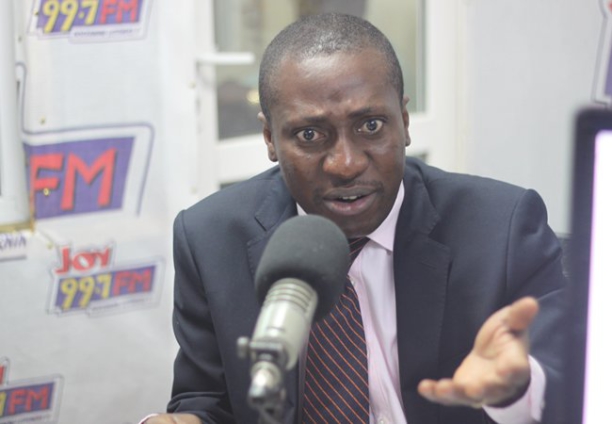The Deputy Majority Leader has accused the opposition National Democratic Congress (NDC) of frustrating government business by influencing its lawmakers not to cooperate with the governing New Patriotic Party (NPP) in Parliament.
According to Alexander Afenyo-Markin, whenever the Majority Caucus makes headway with the Minority, some NDC “hardliners” step in, thus, making the efforts futile.
This partisan prioritisation, the Efutu MP believes has disrupted the passage of several government policies including the controversial Electronic Transaction Levy (E-levy) bill.
“Some senior members from both sides have been engaging on this, we’ve had out of Parliament discussions, sat at round tables and both sides agree that we must make headway on this matter.
“But there are some hardliners, some hawks, some external forces on the side of the NDC who still believe that for this to go through, their chances of coming into power in 2024 will be slipped, therefore, they have to hold this and squeeze as much blood out of it,” he said on Accra-based Citi TV on Monday.
Commenting on the hibernation of the E-levy, the Effutu lawmaker stated that government prioritises consensus building.
In view of this, despite the intrusion of the NDC party, the Majority Caucus is actively engaging the Minority on the passage of the E-levy and other key decisions that government needs parliamentary approval for to enable to effectively govern.
“The reason why we have still not proceeded [with E-levy] and we are still engaging simply tells you that we believe that there must be some consensus. The 1.5% reduction was not accidental, [it was after consensus]. If we don’t appreciate that we need to have consensus, we wouldn’t have engaged them,” he stated.
He further expressed optimism that government and the Majority are making significant progress in getting the Minority’s approval on some key measures to resuscitate the economy
“We have been engaging, and the engagements appear positive, and I believe that if the way we are going, we are able to proceed on that path, we will be able to go through with this,” he stated.
E-Levy
Finance Minister Ken Ofori-Atta, presenting the 2022 budget on Wednesday, November 17, announced that the government intends to introduce an electronic transaction levy (e-levy).
The levy, he revealed, is being introduced to “widen the tax net and rope in the informal sector”. This followed a previous announcement that the government intends to halt the collection of road tolls.
The proposed levy, which was expected to come into effect in January 2022, is a charge of 1.75% on the value of electronic transactions. It covers mobile money payments, bank transfers, merchant payments, and inward remittances. There is an exemption for transactions up to ¢100 per day.
Explaining the government’s decision, the Finance Minister revealed that the total digital transactions for 2020 were estimated to be over ¢500 billion (about $81 billion) compared to GH¢78 billion ($12.5 billion) in 2016. Thus, the need to widen the tax net to include the informal sector.
Although the government has argued that it is an innovative way to generate revenue, scores of citizens and stakeholders have expressed varied sentiments on its appropriateness with many standing firmly against it.
Even though others have argued in support of the levy, a section of the populace believe that the 1.75% e-levy is an insensitive tax policy that will deepen the already prevailing hardship in the country.
Latest Stories
-
Paris 2024: Opening ceremony showcases grandiose celebration of French culture and diversity
2 hours -
How decline of Indian vultures led to 500,000 human deaths
3 hours -
Paris 2024: Ghana rocks ‘fabulous fugu’ at olympics opening ceremony
3 hours -
Trust Hospital faces financial strain with rising debt levels – Auditor-General’s report
4 hours -
Electrochem lease: Allocate portions of land to Songor people – Resident demand
4 hours -
82 widows receive financial aid from Chayil Foundation
4 hours -
The silent struggles: Female journalists grapple with Ghana’s high cost of living
4 hours -
BoG yet to make any payment to Service Ghana Auto Group
4 hours -
‘Crushed Young’: The Multimedia Group, JL Properties surprise accident victim’s family with fully-furnished apartment
5 hours -
Asante Kotoko needs structure that would outlive any administration – Opoku Nti
5 hours -
JoyNews exposé on Customs officials demanding bribes airs on July 29
6 hours -
JoyNews Impact Maker Awardee ships first consignment of honey from Kwahu Afram Plains
7 hours -
Joint committee under fire over report on salt mining lease granted Electrochem
7 hours -
Life Lounge with Edem Knight-Tay: Don’t be beaten the third time
7 hours -
Pro-NPP group launched to help ‘Break the 8’
8 hours

